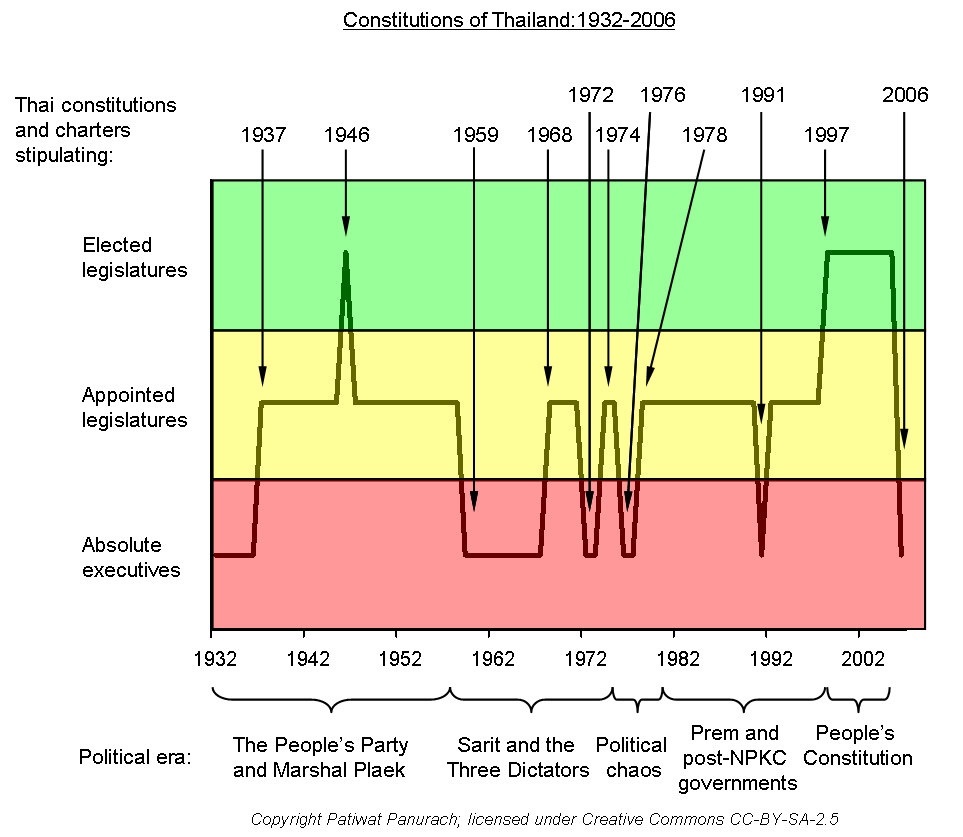Last month, the Thai people voted on a referendum for a new constitution, their 20th constitution since 1932 when King Prajadhipok (Rama VII) acquiesced to the demands of a bloodless coup. It passed with 61% of the vote, with 59% of eligible voters participating. But the numbers don’t tell the whole story.
Quick History of the Current Political Situation
The current political strife in Thailand began in 2013, with protests in Bangkok about former Prime Minister Yingluck Shinawatra introducing an amnesty bill causing long simmering tensions to spill into the streets. The protestors, generally made up of upper-middle class and elites in Bangkok, called for Yingluck to step down and for reforms to be made before a new election.
Elections were scheduled for early February 2014 to try and calm everything down, but because the protestors wanted reforms before an election, it only caused more problems. The election happened, but because the protestors blocked many polling places, the vote was declared invalid, and there was a bit of a do-over for some locations. Yingluck was removed from office by the National Security Council and then faced impeachment, and the previous election was declared void, with a new date set for July 2014.
However, at the end of May, martial law was declared and ultimately there was a coup. A military junta was installed, and in an Orwellian twist called themselves the National Council for Peace and Order (NPCO). An interim constitution was created, and General Prayuth Chan-ocha was installed as the interim prime minister in July 2014. Prayuth repeatedly said that he did not want complete power an that an election for a new constitution would be held within a year.
A New Constitution for Thailand
That election did not happen until August 2016, and the new constitution guarantees representation by the military and the senate will be appointed by the NPCO (the interim military government). Additionally, the prime minister does not have to be an MP, or a member of the legislature. The military-appointed senate can choose any citizen to be the prime minister and can hold a no-confidence vote in future democratically elected governments, essentially codifying a legal coup.
Civil Rights Violations in Thailand
In the intervening time between the coup and the referendum, many civil rights were suppressed. Journalists were jailed, there was an increase in prosecutions and sentence lengths of the lese majeste law, and political gathers were banned.
In the time between the introduction of the draft constitution and the election, opponents were not allowed to campaign against it, and they faced up to 10 years in prison or 200,000 baht (about 5,700 USD) fine. Interestingly, the two parties that were at odds during the protests that kicked this all off were both critical of the proposed constitution. In spite of the lack of support from the political parties, which it is clear that this constitution aims to weaken, and likely because of the lack of vigorous debate under threat of imprisonment, the referendum passed, and elections will take place in 2017.
The Bigger Picture of the New Constitution
That’s not to say that everyone is pleased with the results. There have been bombings in Thailand, that are still under investigation, that were timed with major political developments and targeted at places that either had a representation of Chinese involvement with the government, are tourist destinations in an attempt to hurt the largest industry in Thailand or have internal political significance.
Democracy in Thailand seems to do a dance of one step forward, two steps back, two steps forward, one step back. These latest developments continue this pattern, particularly when you look at the historical classifications of past constitutions.

I think what’s even more unfortunate is that this is unlikely to be robustly debated publicly in Thailand. Certainly the majority of the population of Thailand, which is not in Bangkok, will discuss their discontent behind closed doors, but it’s unlikely that anything will be done to truly advance democracy and suffrage for them in the near future. The next big shake-up in Thai politics will likely be when the line of royal succession comes into play, and that is something to keep your eye on.

